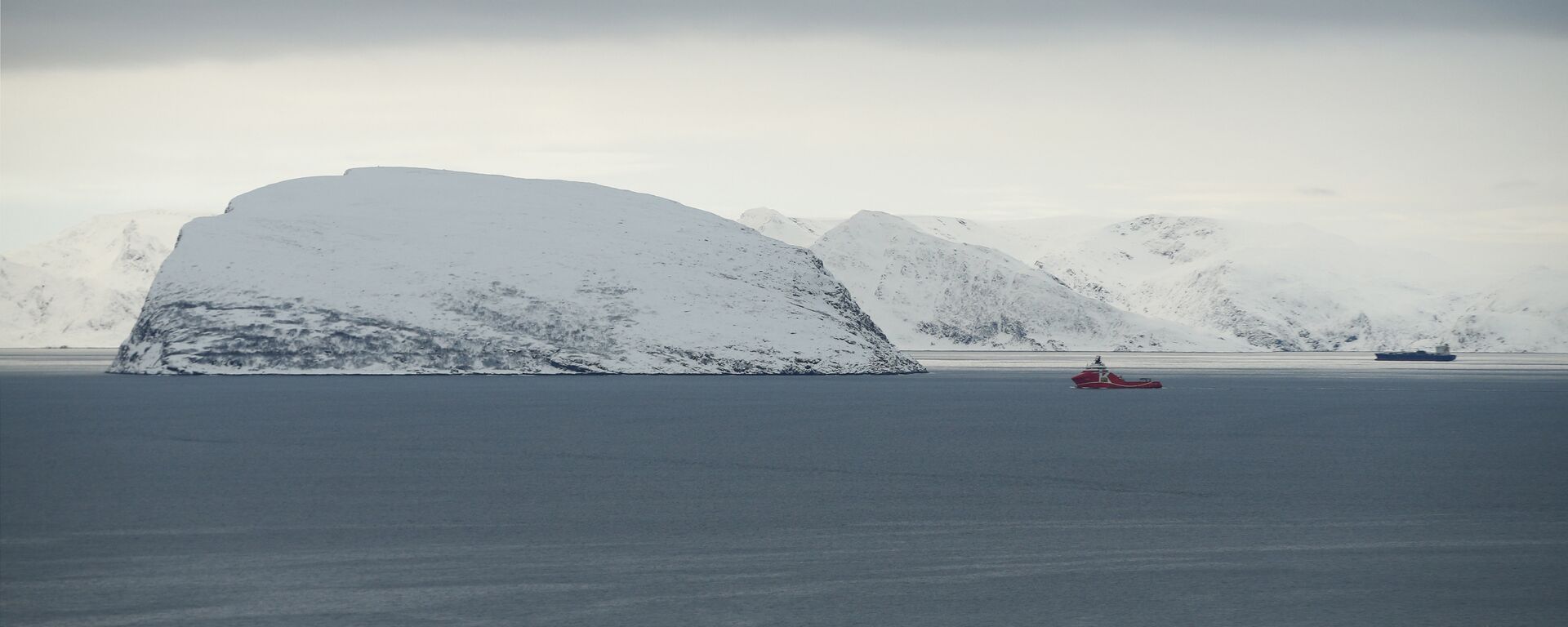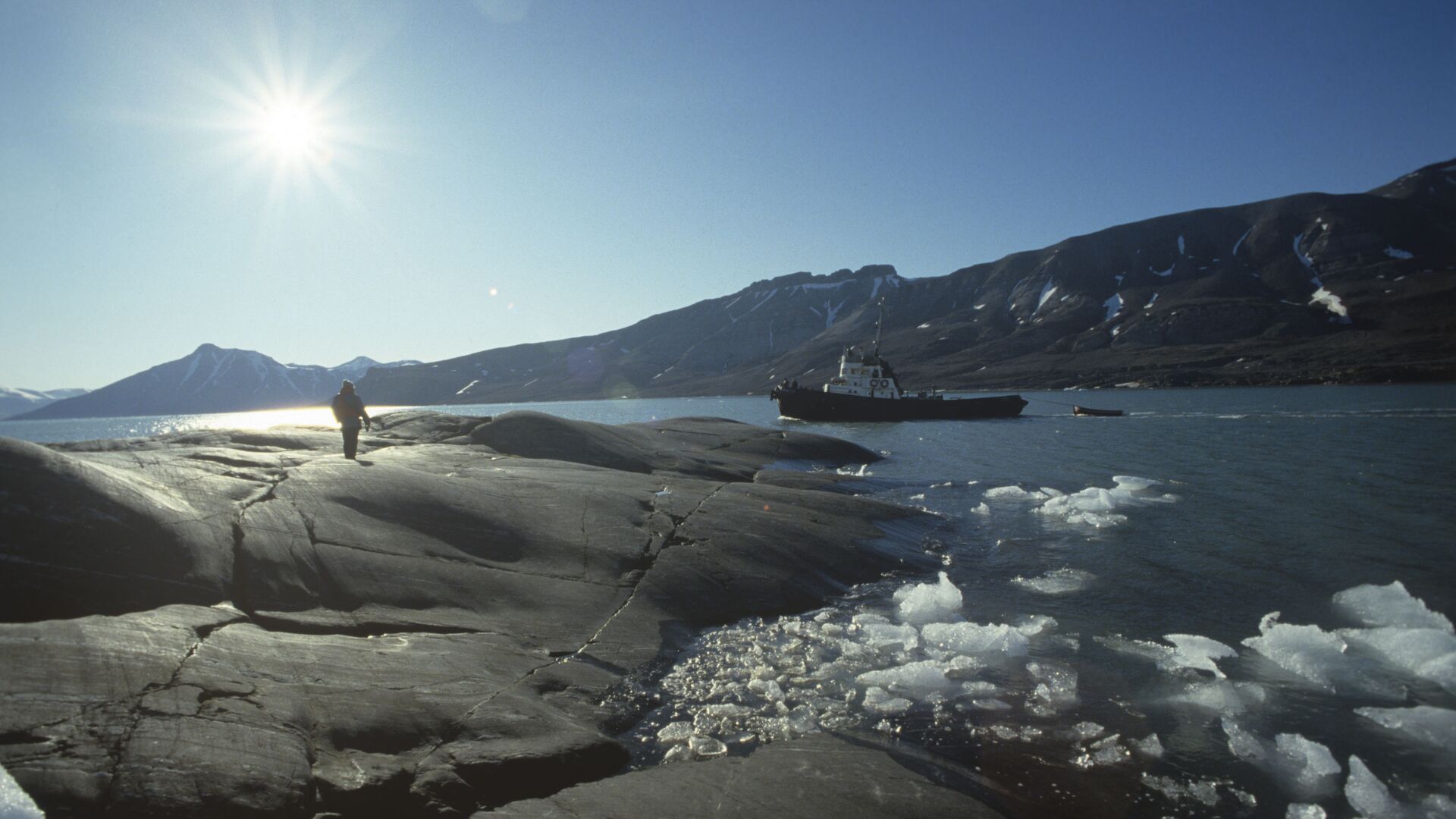https://sputnikglobe.com/20230609/can-norways-deep-sea-mining-bid-fuel-eus-faltering-green-transition-1111025223.html
Can Norway's Deep-Sea Mining Bid Fuel EU's Faltering Green Transition?
Can Norway's Deep-Sea Mining Bid Fuel EU's Faltering Green Transition?
Sputnik International
The EU has estimated that the demand for critical rare earths will increase tenfold towards 2050, yet 98 percent of its current imports stem from China.
2023-06-09T11:35+0000
2023-06-09T11:35+0000
2023-06-09T11:35+0000
economy
norway
china
greenland
european union (eu)
european commission
environment
mining
https://cdn1.img.sputnikglobe.com/img/16061/09/160610996_0:0:3028:1703_1920x0_80_0_0_f3e1eea2ea656d3ae8a919ebd99fb048.jpg
The Norwegian authorities are reportedly finalizing a plan to extract a number of metals from the bottom of the Greenland and Norwegian Seas southwest of the arctic Svalbard archipelago to help Europe meet its urgent need for such resources.According to Amund Vik, state secretary at Norwegian Ministry of Petroleum and Energy, deep sea mining will help Europe cope with its drastic need for minerals and rare earths needed for the "green transition."In the next two weeks, the Norwegian Ministry of Energy reportedly seeks to present a draft which will open a sea zone the size of Germany for exploration and extraction. A vote on the deep-sea mining project is expected in the fall.According to data, 38 million tons of copper are estimated to be contained in this zone, alongside major cobalt deposits. That said, Norway has been touted as the first country offering potential to mine metals needed for the production of batteries from the seabed, as this area is thought to contain deposits of rare earths such as neodymium and dysprosium, which are used in the assembly of electric vehicles and wind turbines.Apart from the Green Transition, deep-sea mining may facilitate the EU's so-called economic decoupling gamble, given that the current supply of these metals is largely controlled by the PRC. Today, wholly 98% of Europe's need for rare earths is met through imports from China.Potential Hurdles Along the WayNorway argues it commands exclusive mining rights owing to the Svalbard Treaty of 1920, which stipulates Oslo's sovereignty over the islands, yet gives other countries the right to economic activity on land and in the territorial waters around the archipelago. Therefore, Russia, the EU and the UK are all at odds with Norway over how large an area of water this treaty covers.Furthermore, Norway's current plans to develop the mining industry have raised objections from fishermen and environmentalists alike due to possible future pollution of the sea, in particular the possibility of toxic heavy metal particles being released. Norway's own environment agency has strongly opposed the plan, stressing the government's failure to provide enough sustainability data. In response, Oslo said that the potential for conflict is minimal given the limited fishing activity and maritime traffic in the area, and reassuringly emphasized its deep commitment to protecting the environment.Despite arguably being ahead in the race for the riches of the depths, Norway is not alone, as mining companies in China, Japan, New Zealand and Papua New Guinea are exploring ways to extract metals from these counties' respective territorial waters.What Are Rare Earth Elements?Rare earth elements (REE) is a collective term for 17 minerals used in most modern technology, such as laser technology, medical technology, defense, electronics and communication devices and hardware of all kinds. The EU has estimated that the demand for them for use in permanent magnets – necessary for electric cars and wind turbines – will increase tenfold towards 2050.The demand for rare earths is accelerating rapidly and the European Commission expects demand to quintuple by 2030, largely driven by the Green Transition - with the electrification of transport, industry and wind power as important examples.Norway is not the sole pillar of the EU's desire for more leverage on the rare earth market. The Swedish mining company, LKAB, also announced the discovery of a large deposit in Kiruna, but it is unlikely to become operational until well into the 2030s.
https://sputnikglobe.com/20230131/norway-discovers-abundance-of-costly-rare-earths-on-its-seabed-1106846299.html
norway
china
greenland
Sputnik International
feedback@sputniknews.com
+74956456601
MIA „Rosiya Segodnya“
2023
News
en_EN
Sputnik International
feedback@sputniknews.com
+74956456601
MIA „Rosiya Segodnya“
Sputnik International
feedback@sputniknews.com
+74956456601
MIA „Rosiya Segodnya“
rare earth minerals, green shift, deep-sea mining, environmental concerns, green transition, economic decoupling
rare earth minerals, green shift, deep-sea mining, environmental concerns, green transition, economic decoupling
Can Norway's Deep-Sea Mining Bid Fuel EU's Faltering Green Transition?
The EU has estimated that the demand for rare earths for use in permanent magnets – necessary for electric cars and wind turbines – will increase tenfold towards 2050, yet 98% of its current imports come from China.
The Norwegian authorities are reportedly finalizing a plan to extract a number of metals from the bottom of the Greenland and Norwegian Seas southwest of the arctic Svalbard archipelago to help Europe meet its urgent need for such resources.
According to Amund Vik, state secretary at Norwegian Ministry of Petroleum and Energy, deep sea mining will help Europe cope with its drastic need for minerals and rare earths needed for the
"green transition."In the next two weeks, the Norwegian Ministry of Energy reportedly seeks to present a draft which will open a sea zone the size of
Germany for exploration and extraction. A vote on the deep-sea mining project is expected in the fall.
According to data, 38 million tons of copper are estimated to be contained in this zone, alongside major cobalt deposits. That said, Norway has been touted as the first country offering potential to mine metals needed for the production of batteries from the seabed, as this area is thought to contain deposits of rare earths such as neodymium and dysprosium, which are used in the assembly of electric vehicles and wind turbines.
Apart from the
Green Transition, deep-sea mining may facilitate the EU's so-called economic decoupling gamble, given that the current supply of these metals is
largely controlled by the PRC. Today, wholly 98% of Europe's need for rare earths is met through imports from China.
Potential Hurdles Along the Way
Norway argues it commands exclusive mining rights owing to
the Svalbard Treaty of 1920, which stipulates Oslo's sovereignty over the islands, yet gives other countries the right to economic activity on land and in the territorial waters around the archipelago. Therefore,
Russia, the EU and the
UK are all
at odds with Norway over how large an area of water this treaty covers.
Furthermore, Norway's current plans to develop the
mining industry have raised objections from fishermen and environmentalists alike due to possible future pollution of the sea, in particular the possibility of toxic heavy metal particles being released. Norway's own environment agency has strongly opposed the plan, stressing the government's failure to provide enough sustainability data. In response, Oslo said that the potential for conflict is minimal given the limited fishing activity and maritime traffic in the area, and reassuringly emphasized its deep commitment to protecting the environment.

31 January 2023, 08:50 GMT
Despite arguably being ahead in the race for the riches of the depths, Norway is not alone, as mining companies in China, Japan, New Zealand and Papua New Guinea are exploring ways to extract metals from these counties' respective territorial waters.
What Are Rare Earth Elements?
Rare earth elements (REE) is a collective term for 17 minerals used in most modern technology, such as laser technology, medical technology, defense, electronics and communication devices and hardware of all kinds. The EU has estimated that the demand for them for use in permanent magnets – necessary for electric cars and wind turbines – will increase tenfold towards 2050.
The demand for rare earths is accelerating rapidly and the European Commission expects demand to quintuple by 2030, largely driven by the Green Transition - with the electrification of transport, industry and wind power as important examples.
Norway is not the sole pillar of the EU's desire for more leverage on the rare earth market. The Swedish mining company,
LKAB, also announced the discovery of a large deposit in Kiruna, but it is unlikely to become operational until well into the 2030s.





